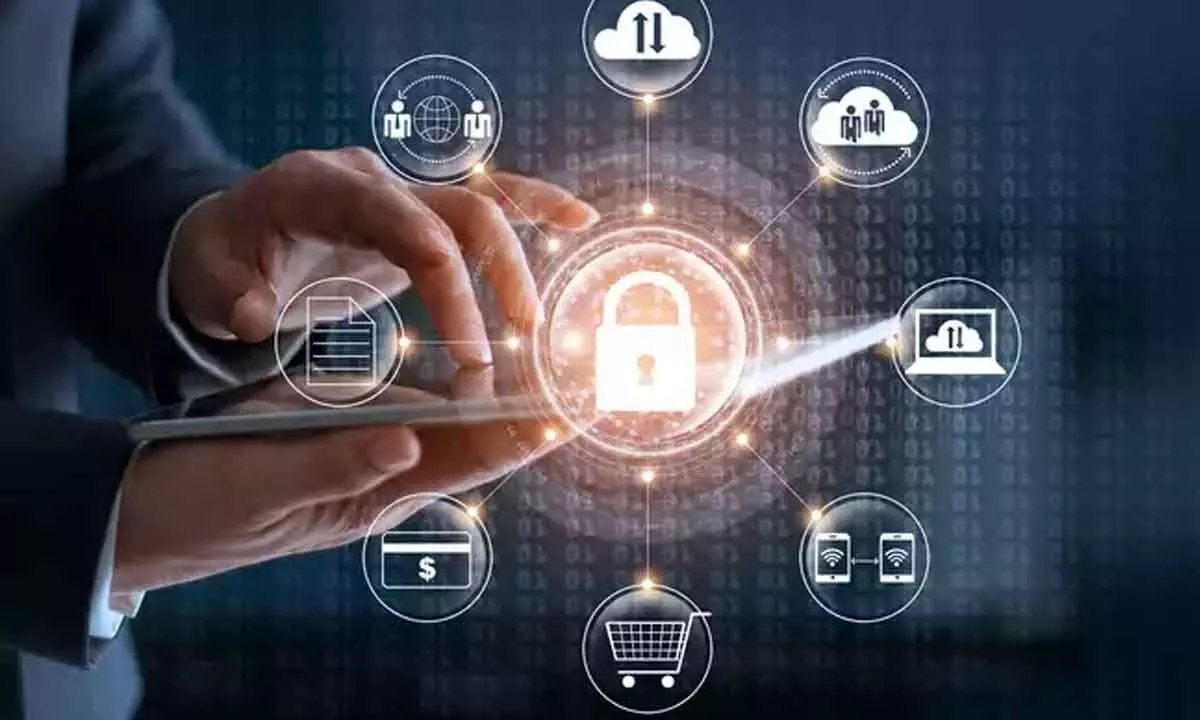What different sectors are doing to protect their data?
Over the period of 12 months, Indian SMBs saw an average of 37 cyber security incidents|each day, resulting in a revenue loss of little over 7%, according to Trellix
image for illustrative purpose

Even as we are now in the era of Web 3.0, every organisation is vulnerable to the danger of cyberattacks if it is underprepared and lacks the necessary resources.
Research by the cyber security company Trellix found that over the period of 12 months, Indian small and medium-sized businesses (SMBs) saw an average of 37 cyber security incidents each day, resulting in a revenue loss of little over 7 per cent. The pressure to protect sensitive data in organisations grows as the number of attacks rises. Each business has its own distinct set of security needs. Some may need data security between apps and data, while some may choose to encrypt data while it is in transit.
Bizz Buzz interacted with various stakeholders to understand the problem and the measures being taken by them to counter the same.
Digital debt resolution platforms play a pivotal role in streamlining and enhancing the debt resolution process, offering convenience and efficiency to individuals and businesses alike. However, in an era where data breaches and cyber threats are becoming increasingly prevalent, ensuring the safety and security of the data collected by these platforms has emerged as a critical concern.
Manavjeet Singh, MD & CEO, CLXNS, says, “We have implemented a comprehensive and robust framework to ensure that the data collected for seamless processing remains protected from theft and misuse.” First, we employ state-of-the-art encryption techniques to secure all sensitive information. This encryption safeguards the data at rest as well as during transmission, making it virtually impossible for unauthorized individuals to gain access. Additionally, we regularly update our encryption protocols to stay ahead of evolving cyber threats, he said. As the fintech industry rapidly advances, data security and protection have become paramount concerns.
Sameer Aggarwal, Founder & CEO RevFin, an EV finance company says, “Adhering to stringent regulatory standards and compliance frameworks, we ensure data privacy and protection by investing significantly in cutting-edge technologies and state-of-the-art security infrastructure, we employ advanced encryption, secure authentication mechanisms, and firewalls to thwart unauthorized access. Regular security audits and vulnerability assessments enable us to promptly identify and rectify potential weaknesses.”
Fostering a culture of data security, our employees undergo rigorous training programs to enhance their awareness of data threats, cybersecurity protocols, and best practices. We have dedicated team to look at security, data protection and business continuity and also to address customer grievances in this space. Strict access controls and protocols are in place to restrict data access to authorized personnel only, he said.
Collaboration plays a pivotal role in combating data threats. RevFin actively engages with industry partners, regulatory bodies, and cybersecurity experts to exchange knowledge, share insights, and collectively strengthen the resilience of the fintech ecosystem. To better manage data and privacy of our customers, we also plan regular awareness sessions for our customers, to educate and inform them about the latest trends and how to keep their data safe, he added.
According to Aggarwal, “By continually evolving our defense mechanisms and promoting a culture of vigilance, we aim to instill trust and confidence in our customers and contribute to a safer fintech landscape.
The HR department in any organization handles a substantial amount of sensitive employee data, including salary information, addresses, PAN numbers and more. This data is highly confidential and must not be disclosed publicly. If this information is accessed by unauthorized entities, it can result in severe problems for the employees, such as banking frauds and identity theft. Therefore, organizations need to prioritize the protection of their employee data.
Sumit Sabharwal, CEO of TeamLease HRtech says, “HR technology is enabling organizations to implement advanced authentication mechanisms for data security. Adding extra layers of security in the form of passwords, biometric data and security tokens has become easier with the help of HR technology.”
Additionally, regular data backups safeguard against data loss and ensure data availability. Backups can help restore employee data to its previous state in the event of a technical failure or cyberattack, he said.
Data threats are a reality, but through preventive measures and the adoption of the right technology, organizations can effectively mitigate the risks and protect valuable information. Moreover, collaboration and sharing of best practices within and across sectors can contribute to a strong defense against data threats. By prioritizing data protection, organizations can ensure the integrity, confidentiality and availability of data in today's ever-evolving digital landscape.
Praveen Sah, Co-Founder & CTO, Awign, says, “At Awign, we prioritize the safeguarding of our clients' data and employ various measures to maintain their trust. We leverage security protocols, encryption techniques, and firewalls to safeguard the data of our clients from unauthorized access, breaches, or cyber threats.”
Awign has a SOC2 certification which acknowledges the effectiveness of our controls over the security, availability, processing integrity, confidentiality, and privacy of client data. It has also enforced access controls, including user authentication mechanisms and multi-factor authentication, to ensure that only authorized personnel can access client data.
Moreover, in case of any security incidents or breaches, the firm has also developed a robust incident response plan to effectively handle these threats, including timely detection, containment, investigation, and communication to clients and relevant authorities if required.

